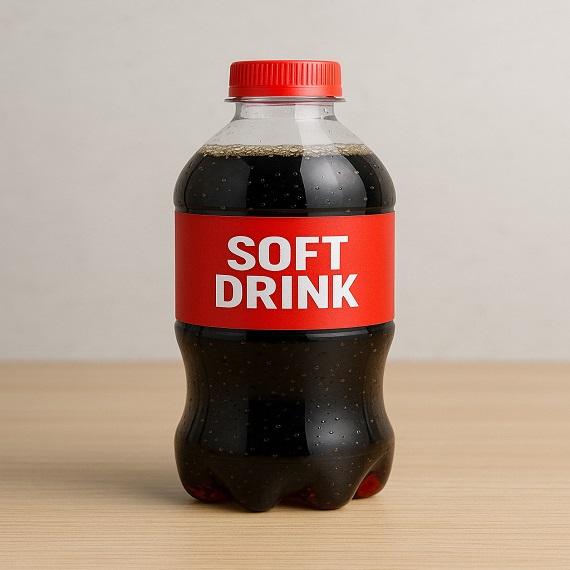
The Importance of Limiting Soft Drink Consumption: A Comprehensive Guide
The Importance of Limiting Soft Drink Consumption: A Comprehensive Guide. Soft drinks, also known as sodas or sugary beverages, are a popular choice for many people around the world. However, the overconsumption of these drinks can have serious health implications. This article explores the importance of limiting soft drink consumption, highlighting the various health risks associated with excessive intake and providing practical tips for reducing consumption.
Health Risks Associated with Soft Drink Consumption
1. Obesity and Weight Gain
Soft drinks are high in added sugars and calories, which contribute significantly to weight gain and obesity. A typical can of soda contains about 150 calories and 39 grams of sugar, which can quickly add up if consumed regularly. Studies have shown that sugary beverages are a leading contributor to the obesity epidemic, particularly among children and adolescents .
2. Type 2 Diabetes
The high sugar content in soft drinks leads to spikes in blood sugar levels, which over time can result in insulin resistance and the development of type 2 diabetes. Research indicates that people who consume one or more sugary drinks per day have a significantly higher risk of developing type 2 diabetes compared to those who rarely drink them .
3. Dental Problems
Soft drinks are acidic and high in sugar, both of which are detrimental to dental health. The acid can erode tooth enamel, leading to cavities and tooth decay. Additionally, the sugar in sodas provides food for harmful bacteria in the mouth, further contributing to dental problems .
4. Heart Disease
Regular consumption of sugary beverages is associated with an increased risk of heart disease. The added sugars can lead to higher blood pressure, inflammation, and high triglyceride levels, all of which are risk factors for cardiovascular disease . A study published in the journal Circulation found that individuals who consumed sugary drinks daily were more likely to die from heart disease than those who rarely drank them .
5. Non-Alcoholic Fatty Liver Disease (NAFLD)
Excessive intake of fructose, a common sweetener in soft drinks, can lead to the accumulation of fat in the liver, causing non-alcoholic fatty liver disease. This condition can progress to more severe liver problems, such as cirrhosis or liver cancer .
Practical Tips for Reducing Soft Drink Consumption
1. Choose Healthier Alternatives
One of the easiest ways to reduce soft drink consumption is to choose healthier beverages. Water, herbal teas, and natural fruit juices (in moderation) are excellent alternatives. Infusing water with fruits or herbs can add flavor without the added sugars found in soft drinks.
2. Limit Availability
Keep soft drinks out of your home or workplace to reduce temptation. Instead, stock up on healthier beverages. If soft drinks are not readily available, you are less likely to consume them.
3. Educate Yourself and Your Family
Understanding the health risks associated with soft drinks can motivate you and your family to make better choices. Educate yourself and your loved ones about the negative effects of sugary beverages and the benefits of healthier alternatives.
4. Set Goals and Monitor Progress
Set realistic goals for reducing soft drink consumption. Start by cutting back gradually and keep track of your progress. Celebrate small victories to stay motivated.
5. Read Labels
Pay attention to the nutritional labels on beverages. Look for the sugar content and opt for drinks with little to no added sugars. Be cautious of beverages marketed as “healthy” or “natural” as they may still contain high levels of sugar.
6. Promote Water Consumption
Make water your go-to beverage. Carry a reusable water bottle with you to stay hydrated throughout the day. Drinking water before meals can also help reduce the likelihood of reaching for a sugary drink.
Conclusion
Limiting soft drink consumption is crucial for maintaining good health and preventing a range of chronic diseases. From obesity and diabetes to heart disease and dental problems, the risks associated with sugary beverages are significant. By choosing healthier alternatives, limiting availability, and educating yourself and your family, you can reduce your intake of soft drinks and improve your overall health.
For more information on the health risks of soft drinks and tips for reducing consumption, visit the following links:
- Centers for Disease Control and Prevention (CDC) – Sugar-Sweetened Beverages
- Harvard T.H. Chan School of Public Health – The Nutrition Source: Sugary Drinks
- American Heart Association – Sugary Drinks
References:
- Centers for Disease Control and Prevention (CDC). (2021). Sugar-Sweetened Beverages. Retrieved from https://www.cdc.gov/nutrition/data-statistics/sugar-sweetened-beverages-intake.html
- Harvard T.H. Chan School of Public Health. (2021). Sugary Drinks. Retrieved from https://www.hsph.harvard.edu/nutritionsource/healthy-drinks/sugary-drinks/
- American Diabetes Association. (2021). Sugary Drinks. Retrieved from https://www.diabetes.org/healthy-living/recipes-nutrition/sugary-drinks
- American Dental Association. (2021). Soft Drinks and Dental Health. Retrieved from https://www.mouthhealthy.org/en/nutrition/food-tips/soft-drinks
- American Heart Association. (2021). Sugary Drinks. Retrieved from https://www.heart.org/en/healthy-living/healthy-eating/eat-smart/sugar/sugary-drinks
- Malik, V. S., et al. (2019). Sugary Drinks and Risk of Cardiovascular Disease. Circulation. Retrieved from https://www.ahajournals.org/doi/10.1161/CIRCULATIONAHA.118.037401
- Mayo Clinic. (2021). Nonalcoholic Fatty Liver Disease. Retrieved from https://www.mayoclinic.org/diseases-conditions/nonalcoholic-fatty-liver-disease/symptoms-causes/syc-20354567
By understanding the impact of soft drinks on health and taking proactive steps to reduce consumption, individuals can significantly improve their well-being and reduce the risk of chronic diseases.




